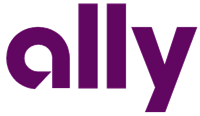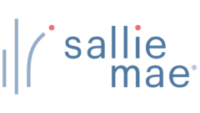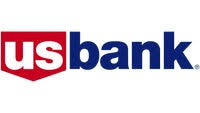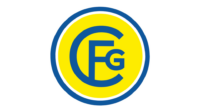Best Money Market Accounts of January 2025: Rates Up to 5.00%


Sara Coleman
Contributor
Sara Coleman is a personal finance writer based in Augusta, Georgia. She’s written countless articles and essays on personal finance topics impacting our everyday financial lives. Before becoming a professional writer, Sara spent years in Corporate America where she gladly volunteered to write the company emails. Sara is a proud graduate of the University of Georgia with a degree in Journalism.


Robert Thorpe
Senior Editor
Robert is a senior editor at Newsweek, specializing in a range of personal finance topics, including credit cards, loans and banking. Prior to Newsweek, he worked at Bankrate as the lead editor for small business loans and as a credit cards writer and editor. He has also written and edited for CreditCards.com, The Points Guy and The Motley Fool Ascent.
Updated December 27, 2024 at 3:00 am
Newsweek Vault’s banking experts have done hundreds of hours of research to present you with all the latest information about your banking options. Whether you’re interested in opening a new checking account or savings account, our research spans all the top online banks, credit unions and brick-and-mortar branches.
We assessed the following five key factors to help you choose the best account for your personal finance needs.
•Associated fees
•ATM access
•Balance requirements
•Customer service
•Interest-earning potential
Vault’s Viewpoint on the Best Money Market Accounts
- By providing a hybrid financial product that combines aspects of high-yield savings and checking accounts, money market accounts offer the best of both worlds, allowing you to write checks or make purchases with a debit card.
- As of January 2025, the top money market accounts offer rates well around 5% APY, making them a great savings option.
- Decide whether an MMA’s flexibility or high money market rate is more important to you—then look for an account offering that feature.
Our Picks for the Best Money Market Accounts
1. Quontic Bank
Best for Low Minimum Opening Deposit
2. UFB Direct
Best for Higher APY

3. Ally Bank
Best 24/7 Customer Support

4. Sallie Mae
Best for No Monthly Fees

5. U.S. Bank
Best for Debit Card Access

6. Vio Bank
Best for Automated Savings

7. CFG Bank
Best for Easy Access

8. Zynlo Bank
Best for Unlimited Transactions

9. First Foundation Bank
Best for Joint Accounts

10. Discover Bank
Best for ATM Access
10 Best Money Market Accounts of 2024
There are plenty of money market accounts to choose from, but these stand out for their unique features and competitive APYs. Whether you’re looking for the highest money market rates or the most flexible access, start by comparing the options below.
1. Quontic Bank

Best for Low Minimum Opening Deposit
Vault Verified
Why We Chose It
While other banks require a high minimum deposit to earn money market rates over 4.75%, Quontic Bank offers a highly competitive APY and only requires a $100 minimum opening deposit. There are no ongoing minimum balance requirements or monthly fees.
Pros and Cons
- Competitive APY
- No monthly fees regardless of balance
- Account comes with a debit card
- Limit of six transfers and withdrawals per account statement cycle
- $10 excess transaction fee applies to every transaction and withdrawal over the limit
2. UFB Direct

Best for Higher APY
Vault Verified
Why We Chose It
UFB Direct has a competitive rate and its money market account and doesn’t require a high minimum balance to earn it. Plus, you get check-writing privileges and access to digital tools like mobile deposit.
Pros and Cons
- All balance levels receive the top-tier APY
- Convenient features such as mobile deposit and SMS messaging
- Enhanced FDIC protection up to $250 million is available
- Must maintain minimum $5,000 balance to avoid monthly fee
- Same APY as its high-yield savings account
- Does not accept cash deposits
3. Ally Bank

Best 24/7 Customer Support
Vault Verified
Why We Chose It
There are no minimum balance requirements or monthly service fees with this account. Plus you get 24/7 customer support via phone, chat or email, which is rare among banks.
Pros and Cons
- Flexible and convenient customer service
- Debit card access
- Mobile deposit
- All tiers have same money market rates
- Doesn’t accept cash deposits
- Limited to 10 account withdrawals per month
4. Sallie Mae

Best for No Monthly Fees
Vault Verified
Why We Chose It
With an impressive APY, $0 opening minimum deposit and no monthly maintenance fees, Sallie Mae is a great option. The account also comes with check-writing privileges.
Pros and Cons
- Check-writing privileges
- No monthly fees or transfer fees
- $0 minimum opening balance requirement
- Limited customer service hours
- Sallie Mae may hold check deposits for up to 5 days for new accounts
- No debit card access
5. U.S. Bank

Best for Debit Card Access
Vault Verified
Why We Chose It
U.S. Bank money market accounts have perks like an ATM card, a debit card and check-writing privileges, making it easy to access your account. Plus it offers user-friendly account management tools, and you can use this money market account as overdraft protection if you’re a current U.S. Bank checking account holder. However, you must maintain a balance of $50,000 or more to receive the high-yield money market rate; otherwise, the account only pays 0.25% or 0.01% APY depending on your lower balance.
Pros and Cons
- Offers a debit card and check writing
- In-person support options
- Extensive ATM network
- Must maintain an account balance of $10,000 to avoid monthly fees
- Requires $50,000 account balance to receive highest APY on the account
- Minimum opening deposit is $100
6. Vio Bank

Best for Automated Savings
Vault Verified
Why We Chose It
In addition to having one of the best interest rates on money market accounts, the Vio Bank Cornerstone Money Market Savings Account offers an automatic transfer plan to help you grow your savings. There are no monthly fees and a low minimum opening deposit, making this account accessible no matter how much you have in savings.
Pros and Cons
- No monthly fees
- Customer service seven days a week
- High APY on all balances
- $5 paper statement fee
- No ATM or check-writing access
- Deposits are on hold for five days
7. CFG Bank

Best for Easy Access
Vault Verified
Why We Chose It
With a CFG Bank money market account, it takes just five minutes to enjoy one of the best money market account rates paired with unlimited monthly withdrawals. Signing up online takes just a few minutes with no headaches, and when you do, you’ll have user-friendly access to your account via online banking, mobile app and in-person branches.
Pros and Cons
- Unlimited withdrawals
- In-person locations
- No fee for excessive transactions
- No check-writing or debit card privileges
- Limit of $30,000 in external transfers a month
8. Zynlo Bank

Best for Unlimited Transactions
Vault Verified
Why We Chose It
Zynlo Bank’s money market account has no monthly maintenance fees, no required minimum balance and no limits on transactions. As a nice bonus, it also has 100% deposit insurance, making this a great account if you want to exceed the standard $250,000 FDIC insurance maximum.
Pros and Cons
- 100% deposit insurance
- Unlimited transactions
- No monthly fees
- Requires a $10 minimum opening deposit
- Balances over $250,000 drop to 0.10% APY
- No checks provided
9. First Foundation Bank

Best for Joint Accounts
Vault Verified
Why We Chose It
If you want to open an account with a spouse or relative, the First Foundation Bank Online Money Market lets you add on a joint user with equal access to funds after you create your account. And since First Foundation has over 30 branches across five states, you can get in-person support if you live nearby for additional assistance.
Pros and Cons
- In-person locations
- Debit card and check-writing access
- No monthly fee
- High minimum opening deposit
- Must fund account with new money
- $35 insufficient funds fee
10. Discover Bank

Best for ATM Access
Vault Verified
Why We Chose It
Discover Bank’s money market account comes with a competitive APY, no minimum balance requirements and no monthly fees. Plus, Discover provides access to over 60,000 no-fee ATMs nationwide, so you’ll always be able to access your money when you need it.
Pros and Cons
- Check writing privileges and ATM access
- No account fees
- No minimum opening deposit
- Balances over $100,000 earn the highest APY
- No branch locations
- $30 fee for outgoing wire transfers
What Is a Money Market Account?
A money market account is an interest-bearing account offered by banks and credit unions. They are similar to savings accounts because you can deposit and withdraw money as needed and earn interest. But money market accounts are also similar to checking accounts because many providers let you pay bills and manage your funds through check-writing or debit card privileges.
Money market accounts are more versatile than certain other banking products, such as CDs. When you need access to your money, you can easily withdraw funds from a money market account without facing early withdrawal penalties. Be aware, however, that banks and credit unions often set limits on the number of withdrawals you can make per month for free from money market accounts (typically six). If you go above the limit then you may have to pay a withdrawal fee.
Like most traditional banking products, money market accounts are secured by FDIC insurance limits of up to $250,000 per depositor.
What Are the Differences Between a Money Market Account and a Standard Savings Account?
While they’re similar, a money market account and a savings account have some key differences. Overall, money market accounts typically have higher interest rates, higher minimum balance requirements and more ways to access your money. However, both are similar in their transaction limitations and FDIC insurance. Here’s a closer look at how the two compare.
| Money market account | Savings account | |
| Interest rates | Higher, fluctuate more often | Lower, potentially more stable |
| Minimum balance requirement | Typically higher | Typically lower or none |
| Access to money | Check writing, debit card and online transfers | Online transfers |
| Monthly withdrawal limit | Varies, but often capped at 6 | Varies, but often capped at 6 |
| Federal Deposit Insurance Corporation (FDIC) Insurance | $250,000 | $250,000 |
How Do Money Market Accounts Work?
When you first open your money market account, you must fund it with cash, check or funds transferred from another account. Once you’ve established your account, you can use it as you would use a checking or savings account.
Money market accounts earn an annual percentage yield (APY), which is the total amount of interest you earn over one year. APY shows you your total earning potential—not just the interest you earn on the money you put into the account but also the interest that gets added to your balance. This is slightly different from a simple interest rate, which is how much you earn on the original amount.
The financial institution publishes the APY, so you’ll know it upfront. Generally, most institutions pay interest monthly and as your account matures, you start earning compound interest.
What Is a High-Yield Money Market Account?
High-yield money market accounts earn a higher-than-average APY compared to a standard savings account. In some cases, the APYs are 13x the national average published by the FDIC. So it’s worth it to shop around and compare money market rates. Generally speaking, you’re more likely to find these with online banks, which can pay higher rates because of their lower overhead.
Who Should Get a Money Market Account?
Anyone who needs a safe, FDIC-insured place for their savings but also wants the accessibility and convenience of a checking account should consider a money market account. The higher APY offers an opportunity to tap into the power of compounding interest and potentially higher earnings compared to traditional savings accounts. It’s a good option for someone who is unsure when they might need their funds, such as when saving for a future vacation or down payment on a new home.
How To Choose a Money Market Account
Not all money market accounts are created equally, and there can be stark differences between one financial institution and another. As you’re making your selection, focus on the features that matter most to you to see how the best money market accounts compare.
Accessibility
One of the hallmark features of a money market account is the accessibility, but each financial institution has its own level it offers account holders. If check writing and debit card privileges are important to you, then confirm that they’re offered. Also look to see how easy it is to transfer funds from one account to another, including external accounts.
Fee Schedule
The fees can add up quickly with a money market account. Make sure to determine whether there are monthly fees, withdrawal fees, transfer fees or out-of-network ATM fees.
Withdrawal Schedule
Pre-COVID, the federal Regulation D limited the number of money market withdrawals to six per month, but then lifted these restrictions (and are still no longer in place as of publishing). But financial institutions can still limit the number of withdrawals each month or tack on fees if you withdraw a certain amount.
Minimum Balance Requirement
Not only are these accounts subject to a minimum opening balance, but you may have to maintain a minimum balance each month to avoid fees. It’s also worth noting the higher APYs may only apply to certain tiers of balances.
How To Open a Money Market Account
Opening a money market account is similar to opening a checking or savings account. The first step is identifying what features are most important to you and narrowing down your selection from there.
Find out what the minimum opening balance requirement is for the account and how you can initially fund the account. You can open an account either in person or online, depending on the structure of the financial institution.
When you’re ready to open the account, you’ll need:
- A government-issued identification
- The routing and account number if your initial deposit comes from a checking account
- Your Social Security number
Pros and Cons of a Money Market Account
A money market account blends accessibility with potentially high earnings, but there are a few things to consider before you commit to this type of account.
Pros
- You can earn a higher APY versus a traditional savings account
- Some accounts offer check writing, debit cards and ATM access
- Enhanced security with FDIC-insured accounts
- Flexible deposit options, especially when you link other accounts
Cons
- May be subject to numerous fees
- Can impose minimum balance requirements
- Some require a high balance to qualify for the highest APY
Alternatives to Money Market Accounts
If you’re not sold on a money market account, there are plenty of alternatives for storing or investing your money.
- High-yield savings accounts: These are savings accounts that earn more than the average savings APY, helping to maximize your earnings. In many cases, they earn the same or more than money market accounts.
- Certificates of deposit (CDs): CDs are a type of savings account where you lock your money away for a set term at a fixed APY. The benefit is that your APY stays the same throughout the term, even if the market fluctuates.
- High-yield checking accounts: If what drew you to a money market account was the ability to write checks and pay bills, you might have more flexibility with a high-yield checking account. These earn more interest than a standard checking account, but they likely won’t earn as much as the best money market account rates.
- U.S. Treasury Series I bonds: Treasury bonds are sold by the U.S. government, so they’re a relatively stable investment. The interest rate fluctuates depending on the market, meaning you have the chance for extremely high APYs. You can cash out your bonds any time after a year, but if you don’t, they’ll keep earning interest for up to 30 years.
- IRA or 401(k): If your goal is to start saving money for retirement, an individual retirement account (IRA) or a 401(k) are better alternatives to a money market account. They’re less stable, as their value can go up and down depending on the market, but they offer the chance for much better returns.
Money Market Account vs. Money Market Mutual Fund
Money market accounts are deposit products that often earn a higher interest rate than a typical savings account. In comparison, money market mutual funds are a type of low-risk mutual fund. Money market funds invest in low-risk securities like cash equivalents, government bonds and Treasury bills. They’re designed to be a safe, stable way to hold money that you don’t want to expose to higher levels of investment risk.
Because these accounts are bought and sold like any other mutual fund, the money isn’t as easily accessible as it is in money market accounts. You’ll have to log into your brokerage account to make a withdrawal, and it could take several days to transfer the funds. Some money market funds allow you to write checks, or you can sell your shares to turn their full value back into cash.
Since money market mutual funds are offered by brokerages rather than banks, they are subject to SIPC insurance instead of FDIC insurance. SIPC provides coverage for up to $500,000 per brokerage account in the event your investment firm fails.
| Money Market Account | Money Market Mutual Fund | |
| Type of Account | Deposit account | Mutual fund |
| Insured by | Federal Deposit Insurance Corp (FDIC) | Securities Investor Protection Corp. (SIPC) |
| Offered by | Banks and credit unions | Investment companies |
| Availability | Immediate access to funds | May take several days to withdraw the funds |
Newsweek writer Jamie Johnson contributed to this post.
Frequently Asked Questions
What Is the Difference Between a Money Market Account and High-Yield Savings Account?
While both are FDIC-insured accounts designed for savers, the difference between a high-yield savings and money market account is typically the accessibility. Most money market accounts have features you won’t typically find with high-yield savings accounts, including check-writing privileges and access to ATMs and debit cards.
Do You Pay Taxes on a Money Market Account?
The interest you receive from a money market account is considered taxable income by the IRS. You’ll receive a Form 1099-INT if you earn more than $10 in interest from a money market account.
Should I Keep All of My Money in a Money Market Account?
This depends on your savings goals and the intended use of the funds. For example, you may want to use a money market account as your primary savings account if you need easy access for withdrawals and transfers, while still earning interest. However, you may prefer different savings vehicles for other purposes, such as saving for retirement, since these accounts typically have lower earning potential compared to options like tax-advantaged investing accounts.
Who Has the Highest Money Market Rate Right Now?
Currently, Vio Bank is one of the best banks for money market accounts, offering an APY of 4.90%. However, you can also find competitive money market rates with UFB Direct, Quontic Bank, CFG Bank and Zynlo Bank. In general, most of the banks offering the highest money market rates are online banks, so check those first if you’re searching for the best APY.
What Is the Downside of a Money Market Account?
Some money market accounts limit your withdrawals, meaning you can’t use them like a checking account to pay bills. Others may have minimum balance requirements, and you may incur a fee if you go under that amount. It’s also possible for a money market account to charge a monthly maintenance fee, especially if your account falls under a certain balance. Finally, because money market interest rates are tied to the market, your APY isn’t guaranteed and can drop suddenly if the economy takes a tumble.
Editorial Disclosure: We may receive a commission from affiliate partner links included on our site. However, this does not impact our staffs’ opinions or assessments.

Sara Coleman
Contributor
Sara Coleman is a personal finance writer based in Augusta, Georgia. She’s written countless articles and essays on personal finance topics impacting our everyday financial lives. Before becoming a professional writer, Sara spent years in Corporate America where she gladly volunteered to write the company emails. Sara is a proud graduate of the University of Georgia with a degree in Journalism.